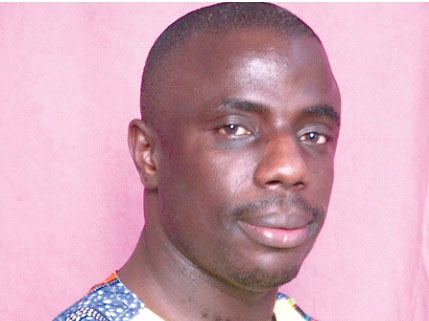George Osei-Bimpeh
Send Ghana, a civil society organisation, says its preliminary assessment of the 2019 budget statement has identified several cross-sector and sector-specific concerns.
It said issues such as overdependence on donor and private funding, fragmentation and weak governance, short-changed goods and services, poor targeting cut across the assessed sectors.
Country Director George Osei-Bimpeh, who made the presentation, said that after over 60 years of independence, government heavily relies on development partners and the capital market for funding.
“In the health sector, government has failed to allocate enough GoG funding to the Ministry of Health for capital expenditures in 2019. In fact, 73.9 percent of the allocation for capital expenditures is expected to come from development partners, with the Annual Budget Funding Amount and Internally Generated Funds providing the remaining 26.1 percent.
“In the education sector, free primary and secondary education has increased the number of children in schools. However, this increase has led to overcrowding and exposed wide infrastructure gaps within the education system. Without predictable funding, we have observed that many education infrastructure projects are stalled and require critical financial support to progress past low levels of completion.
“Government has made it so that the main source of funding for education capital expenditures in 2019, including the construction of fundamental education facilities, is set to be the capital market. Since private funding can be unpredictable, government must ensure a sustainable source of adequate funds for infrastructure development. It’s time government made use of its mineral revenues to raise human capital in the country.”
Water and sanitation
He revealed that 84.6 percent of money allocated to the Ministry of Sanitation and Water Resources was sourced from development partners in 2017.
“In 2018 the amount was 60.3 percent. This trend is set to continue in 2019; 70.3 percent of projected funding for the WASH ministry will be donor-driven. According to our analysis, donor support is unpredictable and puts water, sanitation and hygiene interventions at risk. In 2017, only 4.6 percent (GH? 9,227,763) of the expected GH? 201,824,097 was actually released to the WASH ministry. Goods, services and capital expenditures suffered the most, meaning WASH facilities across the country were not provided.”
Food and agriculture
In the food and agriculture sector, he said government has for years failed to meet Comprehensive Africa Agriculture Development Programme obligations and invested less than 10 percent of its annual expenditure in agriculture.
“According to our analysis, more than half (51.2 percent) of the Ministry of Food & Agriculture projected expenditures in 2019 are set to be sourced from donors.
“With Ghana’s attainment of lower middle income status, donor support may start to dwindle. To make Ghana self-sufficient and attain a Ghana Beyond Aid, as well as Sustainable Development Goals 1, 2 and 17.1, (i.e., no poverty, no hunger and strengthened domestic resource mobilization), government must find a sustainable way to fund and implement its own capital investments.”
Inadequate targeting of marginalized
“The 2019 budget statement is silent on how to track the poor and vulnerable to include them in social protection programmes. For example, the budget statement does not include a strategy to link women, disabled farmers and able-bodied LEAP beneficiaries to the ‘Planting for Food and Jobs’ programme, which has great potential to lift them out of poverty.
It said in 2017, only 4.6 percent of PFJ beneficiaries in the Northern Region were women. To link the poor and vulnerable to PFJ, government should enroll LEAP beneficiaries on the programme as a graduation measure and implement a quota system to target marginalized groups.
“Further, government must fast track the completion of the Ghana National Household Registry to improve targeting. Currently, disaggregation of data to identify vulnerable beneficiaries is bad. The Ghana National Household Registry has suffered undue delays and transaction costs since it started in 2015, with completion only taking place in the Upper West and East regions to date. As a result, the creation of a database to target the extremely poor, and improve transparency, accountability and efficiency has also stalled.
“Government must prioritize and provide a timeframe for completion of the registry in the other regions. This is especially important given that government intends to operationalize a new productive and financial inclusion programme with livelihood creation opportunities linked to LEAP and other social protection beneficiaries in 2019.”
By Samuel Boadi


